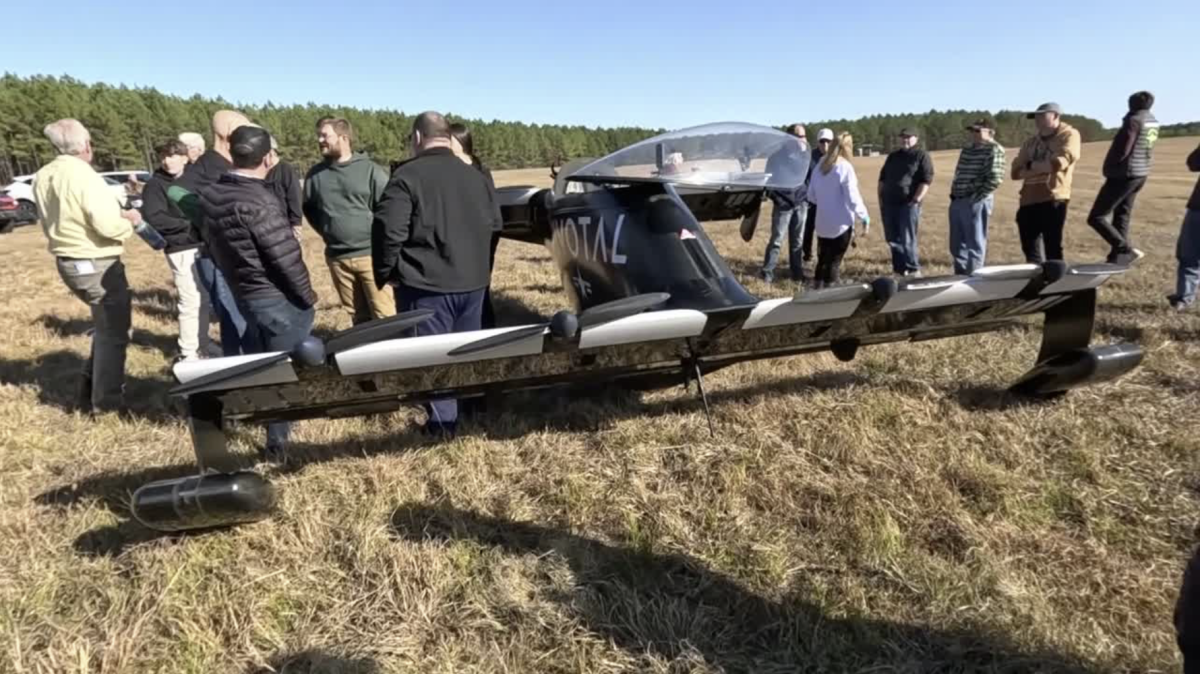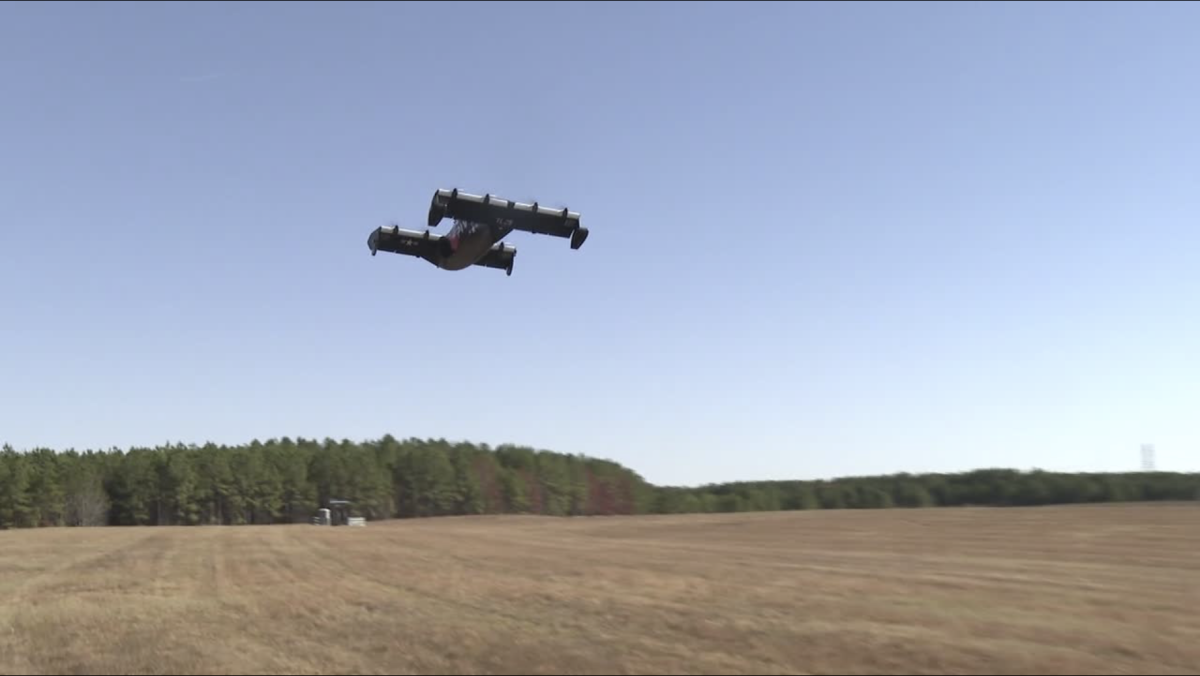A California-based startup has completed a public test flight of its single-seat, all-electric flying car, taking a major step toward consumer-oriented personal aviation. The demonstration, held at the Center for Automotive Research in Northampton County, North Carolina, saw the craft climb to roughly 150 feet and complete a low-altitude circuit. Priced around $190,000, the vehicle is aimed at individual owners rather than air-taxi fleets, and the company’s test pilot went as far as saying, “Everybody’s going to have one.”
The prototype, developed by Pivotal Aero, uses a lightweight electric VTOL layout and reportedly offers about 25 miles of range with speeds near 60 mph. Under current FAA ultralight-style rules, early models may not require a traditional pilot’s license, though flights are restricted to uncongested areas and daylight operation. The company is pitching it as a recreational or short-hop personal aircraft while it pursues broader approvals.

A Glimpse Into the Future of Flying Cars
The test flight arrives at a moment when hype around airborne personal vehicles is increasing again, especially after claims like those surrounding Tesla’s next-generation Roadster. While Tesla’s concept leans more toward futuristic hovering technology than true eVTOL operation, it reflects the same momentum now seen in Pivotal’s real-world prototype.
Still, the practicality of these machines is far from proven. Regulatory oversight, infrastructure gaps, and the limitations of current battery technology are major hurdles, and safety remains a central question. Recent incidents across the emerging eVTOL field, including a recent one in China, show the need for strong certification and reliability standards before any mass rollout.

Why This Matters
Pivotal’s prototype suggests that the “personal flying car” niche may grow faster than expected, but only for affluent early adopters. The current price, short range, and restricted-use rules make it more of a specialized recreational aircraft than a mass-market mobility product.
Still, the significance goes beyond hobbyist appeal. As major automakers push into electrification, including Toyota’s new mainstream efforts, the broader transportation landscape is shifting rapidly. Personal electric aircraft represent another branch of that evolution, merging automotive-style usability with simplified aviation.

What Comes Next
To move beyond demos, companies like Pivotal must secure FAA certifications, expand battery capacity, boost flight time, and build the infrastructure for charging and maintenance. Urban airspace regulation, noise standards, and emergency procedures will also shape how, and where, these vehicles can fly.
Even with massive hurdles ahead, the successful test flight is a reminder that the line between cars and aircraft is blurring. Whether these machines become common or remain niche, the first wave of all-electric flying cars has officially left the ground.
via Autoblog https://ift.tt/ZyKbquw
November 17, 2025 at 02:04PM
